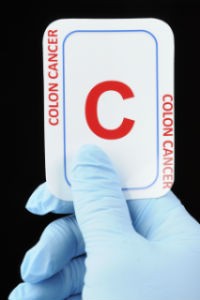
Chances are it’s not enough. Especially if you’re nearing age 50 or are older because that’s when you’re most at risk for developing it.
Colorectal cancer usually has no early signs and typically grows from polyps–small tumors on the inner lining of the colon or rectum that rarely cause symptoms. Polyps can be removed during a routine colonoscopy to prevent them from ever becoming cancerous.
Wait. Colonoscopy?
For many, this is the ‘C word’ that causes the most angst. But today’s prep and exam are easier than you may think.
Check out these 7 things you need to know about getting a colonoscopy and then read on for some straight facts about colorectal cancer that could save your life.
Myth: Colorectal cancer is a man’s disease.
Fact: Colorectal cancer is just as common among women as men. It’s the second leading cause of cancer-related death and is more common in women than breast cancer.
Myth: Colorectal cancer can’t be prevented.
Fact: Colorectal cancer is one of the most preventable, yet least prevented, cancers in the U.S. today. It almost always starts with a polyp. If the polyp is found early, doctors can remove it and stop colorectal cancer before it starts. In fact, colorectal cancer risk is reduced by 90 percent following colonoscopy and polyp removal.
Myth: Age doesn’t matter when it comes to getting colorectal cancer.
Fact: More than 90 percent of colorectal cancer cases are in people age 50 and older. For this reason, the American Cancer Society recommends getting tested for the disease starting at age 50. People who are at a higher risk for colorectal cancer—for example, those who have colorectal cancer in their families—may need to begin testing at a younger age.
Read the recommended colorectal cancer screening guidelines and talk to your doctor about when you should start being tested.
Myth: It’s better not to get tested for colorectal cancer because it’s deadly anyway.
Fact: When found and treated early (stage 1), the five-year survival rate for colorectal cancer is more than 90 percent. Routine screenings and colonoscopies can reduce the numbers of people who die of colorectal cancer by as much as 60 percent.
Myth: African-Americans aren’t at risk for colorectal cancer.
Fact: African-American men and women are diagnosed with colorectal cancer at higher rates than any other racial or ethnic group in the United States. Colon cancer is the leading cause of cancer-related deaths among African-Americans. The reasons for this are not yet understood.
The American College of Gastroenterologists recommends African-Americans start colorectal cancer screenings earlier, at age 45 instead of age 50. Earlier screening could detect colorectal cancer at a more treatable stage.
 /a>
/a>
 /a>
/a>
 /a>
/a>